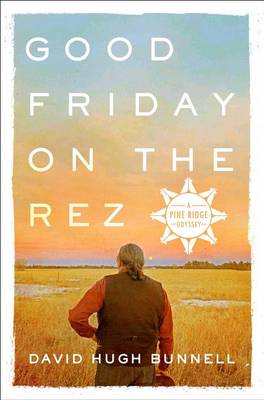The first thing that needs to be made clear is that this is not written by a Native American author. I didn't realize that until I started reading the book.
The author is a white man who has lived on or near the Pine Ridge Lakota reservation off and on through his life. He is going to visit a man who he met when the author was teaching school on the reservation. Vernell White Thunder was one of his students in the 1970s.
The road trip is used as a narrative device to comment on events from history and current events that affect life on the reservation. As the author passes towns where events occurred, he discusses them. This is a good introduction to the history of United States military treatment of the Native people. He also touches on:
- systemic and institutional racism faced by the tribe
- poverty
- the effects of alcoholism
- the importance of Wounded Knee (both the massacre in the 1800s and the uprising in the 1970s)
As he gets closer to the reservation, he gives more information about Vernell. He is looking for Perrier and Dinty Moore beef stew to take to Vernell. He tells some jokes that Vernell tells that are very self-deprecating. I have seen reviews that tear this book apart because of this. In every case, the reviewer stopped reading the book at this point because they felt that the author was negatively portraying a native man. I thought that was interesting. I think it is more of a statement of the inherent expectations of the reviewer than the author. They seem to assume that Vernell is going to be a poor man living on the reservation who needs beef stew as charity and that this author is exploiting him.
When you meet Vernell, you find out that he is:
- an entrepreneur
- a mentor to local teens
- the owner of a resort that gets guests from all over the world
- a successful rancher raising buffalo and horses
- a large landowner on several reservations
- the son of a respected chief who was was taking over more of his father's duties as his father's health declined
Vernell White Thunder is so cool that he's almost a rock star.
The author discusses the changes that he has seen in younger Native generations. He hopes that today's young people are the Seventh Generation since the military suppression of the tribes that were foretold as the generation who will live up the tribes again. He is hopeful because of the resurgence of tribal language speakers and young people proud of their history.
The author died before publication of the book so it was bittersweet to read about the wonderful things that he wanted to live to see this generation accomplish. Although it discusses a lot of dark history, at the end this is a hopeful book. It is a testament to the people of Pine Ridge and one enduring friendship that started there.This review was originally posted on Based On A True Story
